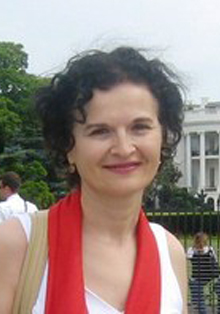Pedro González
Journalist
The war in Ukraine is not over, and no one dares to set an end date for it, but the Czech Republic is already thinking about the reconstruction of the country devastated by the invasion of Vladimir Putin’s Russia. The world revolves around what is happening in Eastern Europe, and the head of the Czech government, Petr Fiala, does not want to delay the process of shaping the new European Union, whose six-month rotating presidency he has just taken over from Emmanuel Macron’s France.
“Rethink, rebuild, revitalise” is the motto, borrowed from an expression of the first democratic president of the Czech Republic, Vaclav Havel, to face these six months, which are once again expected to be decisive for the future of the European Union. Of the five work priorities that Prague has set itself for this period, two will have a particular impact on the entire territorial scope of the EU: the management of refugees from Ukraine and energy security. With regard to the former, Fiala hopes that, in addition to the central governments of the EU-27, the regions will be fully involved.
Energy security is the biggest challenge facing European public opinion for many years. There is a growing conviction that the rampant shortage of gas and oil will force the population to take on severe consumption restrictions, and that this situation is not merely an economic shock but the consequence of a war that Europeans in general have not experienced for a long time, with the exception of the Balkans.
It remains to be seen how to combine the urgent demands expressed daily by Ukrainian President Volodymir Zelenski and Europe’s willingness to meet them. Zelenski quantified before NATO leaders meeting in Madrid the amount needed to sustain the war against Russia with the prospect of winning it at 5 billion euros a day. An enormous economic effort which, if there is real political will to make it, will require a great deal of unity and no small amount of tension when the prolongation of the conflict tends to accentuate fatigue and give in to the temptation to relax the effort.
Nor are the other three priorities set out by the head of the Czech government any less important: strengthening Europe’s defence capabilities and the security of cyberspace; accentuating the strength of the European economy; and the resilience of Europe’s democratic institutions. The latter is particularly important, as the urgencies of war tend to prioritise autocratic efficiency. The president of the European Commission, Ursula von der Leyen, has once again stressed this point, warning Poland that European funds are still conditional on respect for the independence of the judiciary, which the current government in Warsaw intends to put at its service.
In addition to the hundreds of meetings and events planned both in the Czech Republic itself and in Brussels and Luxembourg, a summit of EU heads of state and government at the beginning of October is scheduled for the six-month period, with two main items on the agenda: the situation resulting from the war in Ukraine at that time and the analysis of the political community of EU-friendly countries proposed by President Macron during his six-month presidency. In addition, Prague wants to add the EU’s relations with the Balkans, where Serbia and Albania, in particular, hope not to be relegated by Ukraine to the EU’s complacency.
© Atalayar / Allrights reserved





